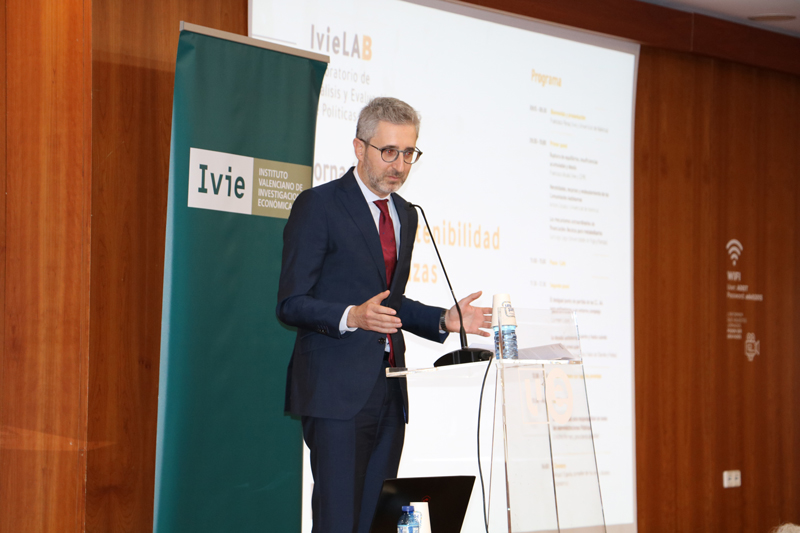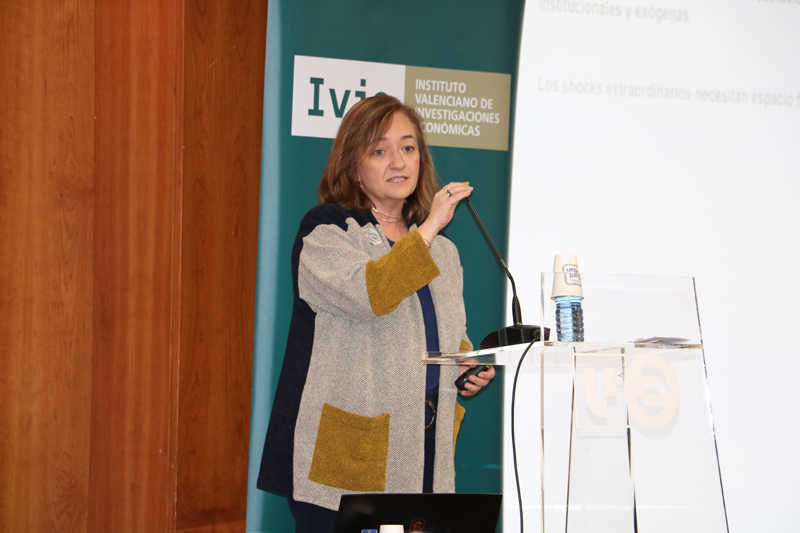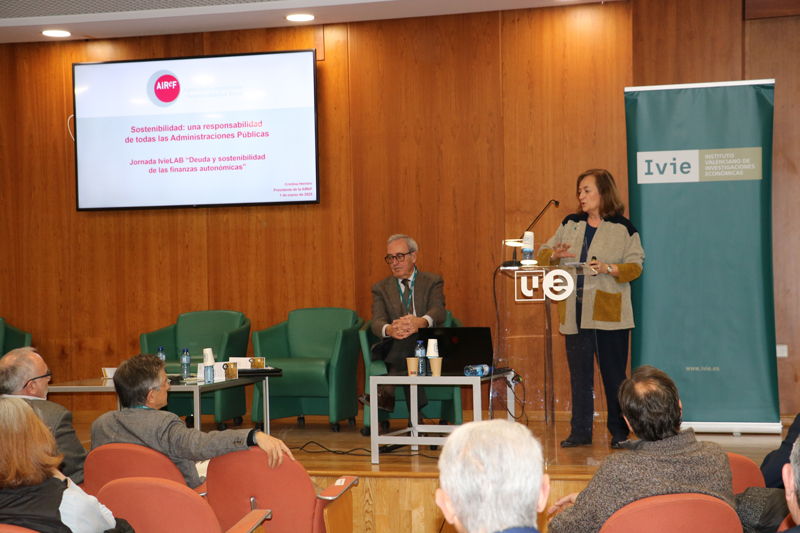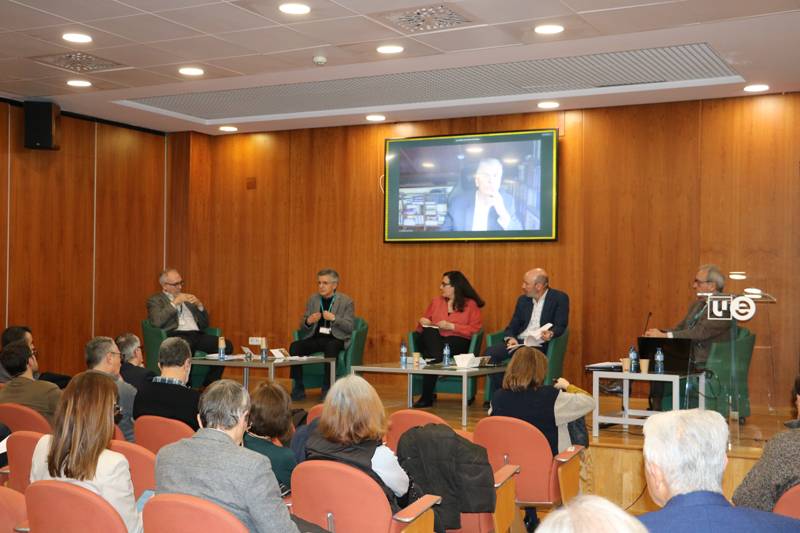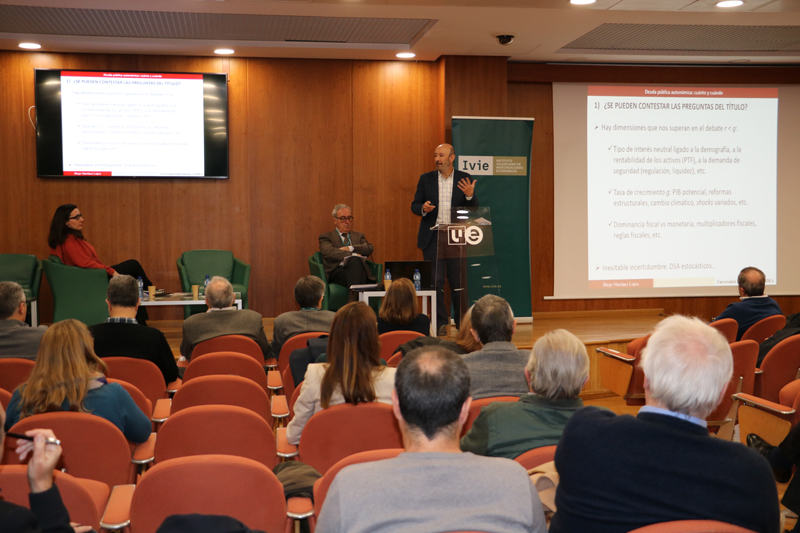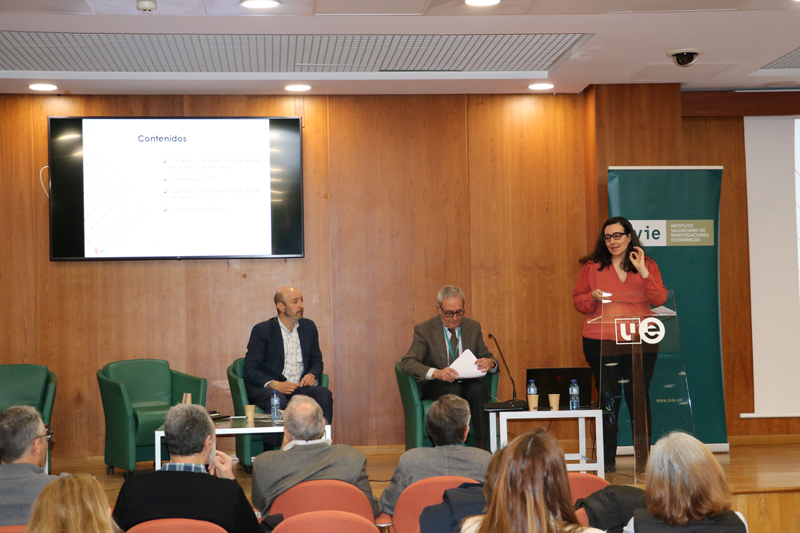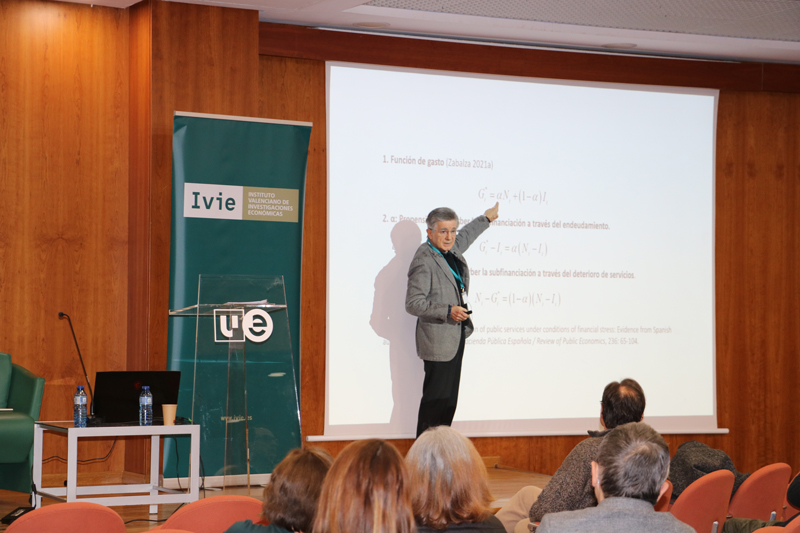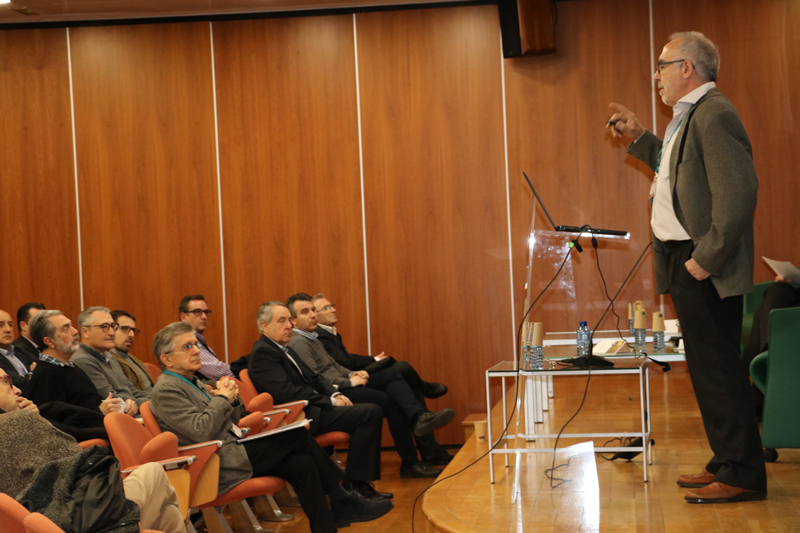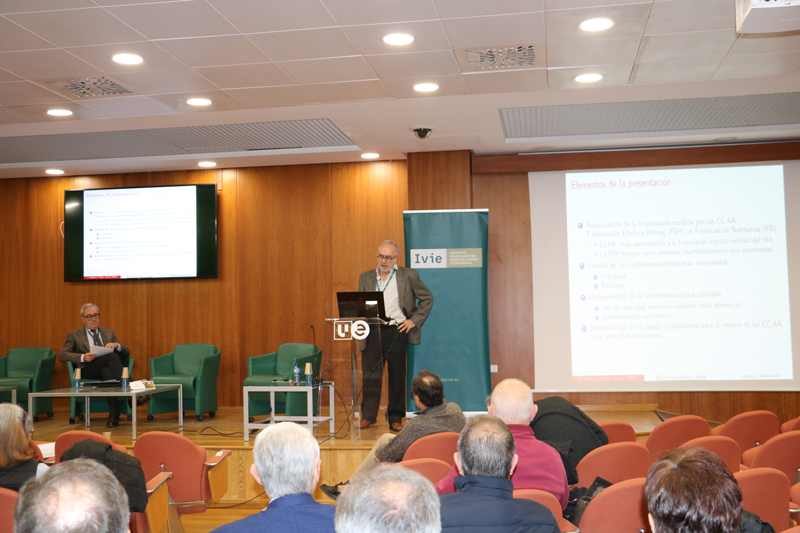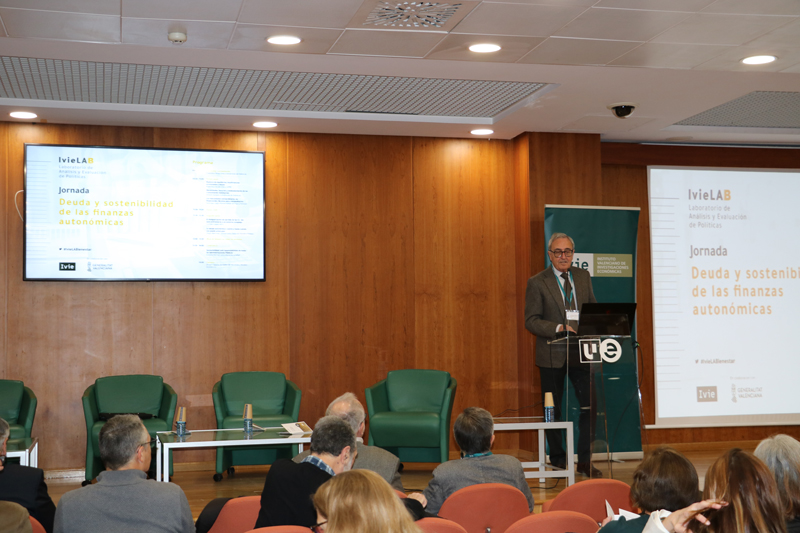News
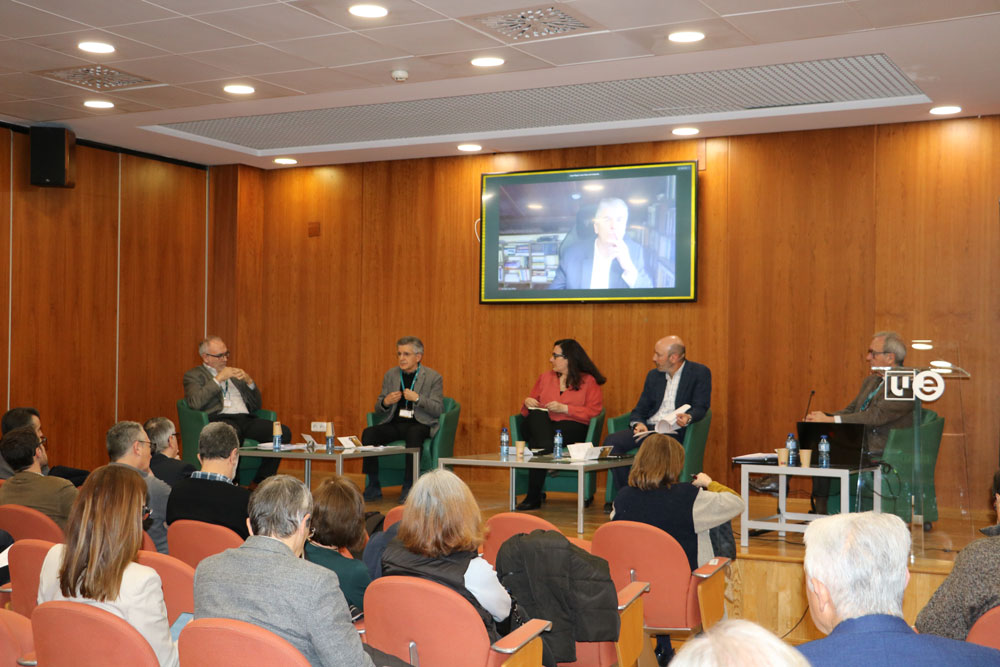
The Valencian Community will no longer be able to borrow funds from the markets unless the Government absorbs part of its debt linked to underfunding
Experts from AFI, Fedea, AIReF, Funcas and Ivie participate in the IvieLAB discussion on debt and sustainability of regional finances
The underfunding suffered by the Valencian Community is the main reason behind its indebtedness, which represented 44% of the region’s GDP in 2022. However, this situation also increases the tax burden on its citizens. Debt and further taxes are needed in order to provide the same level of basic public services as the average of the Spanish regions, especially in health and education. This is one of the key ideas expressed in the document “Ruptura de equilibrios, insuficiencias acumuladas y deuda”, presented by Ivie researcher, Francisco Alcalá, during the debate organized by IvieLAB on debt and sustainability of regional finances.
The document explains how the reform of Spain’s regional financing system (RFS) in 2009 led to additional inequalities both in the amount and in the distribution of resources among regions. Particularly, it states that the total financing per adjusted inhabitant in the common regional financing system fell by 11.3% during the current system versus the previous one from €2,780 in 2002-2008 to €2,466 in 2009-2019.
The financial reality of the Valencian Community, taking into account the actual funding instead of the inaccurate calculation made by the RFS, is that its resources per adjusted inhabitant have fallen by 12.6% between both periods, from €2,592 in the previous model to €2,265 during 2009-2019 (excluding the years 2020 and 2021 due to the exceptional nature of the resources needed to mitigate the effects of the pandemic).
The consequences of underfunding in the Valencian Community, which reached 36,550 million euros at the end of 2019 (€7,509 per capita), are, firstly, the rapid increase in regional indebtedness during the period 2009-2019, and secondly, an increase in tax burden on its citizens. The underfunding suffered by the Valencian Community explains 75.5% of its accumulated debt.
In addition to becoming more in debt, the Valencian Community has been forced to increase the regional tax burden on its citizens in order to provide the same level of services as other regions. The fiscal effort made by the Valencian Community is three times higher than the average of other regions. It also differs from other regions that have been able to reduce taxes because they receive the necessary funds to care for their actual needs. Without this tax overexertion, the indebtedness of the Valencian Region would have increased an additional 7,284 million euros between 2009 and 2019, that is, 15% more.
The presentation of the report developed by the Laboratory for the Analysis and Evaluation of Public Policy (IvieLAB), a project created by the Ivie and the Valencian Regional Government, took place on March 1st, 2023. The following experts particated: Antoni Zabalza (Universitat de València), Santiago Lago (Universidade de Vigo and Funcas), Carmen López Herrera (AFI) Diego Martínez (Universidad Pablo de Olavide and FEDEA). The final conference was given by Cristina Herrera, President of AIReF, while the Regional Minister for Finance and the Economic Model, Arcadi España, was in charge of closing the event.


